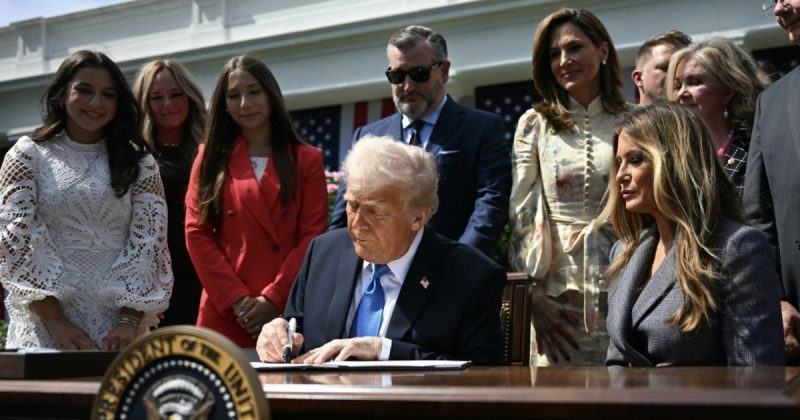
President Donald Trump recently signed into law the “Take It Down Act,” a bipartisan bill designed to combat the proliferation of explicit, AI-generated deepfakes. This significant piece of legislation aims to curb the creation and distribution of non-consensual intimate imagery, a growing problem fueled by advancements in artificial intelligence.
The bill focuses specifically on explicit deepfakes, which are manipulated videos or images that portray individuals in non-consensual sexual situations. These deepfakes are often incredibly realistic, making them particularly damaging to victims. The ‘Take It Down Act’ provides a legal framework for removing such material from online platforms, empowering victims to reclaim their digital identities and seek redress.
NBC News correspondent Hallie Jackson highlighted the importance of the bill, emphasizing its potential to protect individuals from the devastating emotional and psychological consequences of non-consensual deepfake pornography. The act aims to hold both creators and distributors of these deepfakes accountable, creating a more secure online environment.
While the details of enforcement and the specific legal ramifications are still being clarified, the signing of the ‘Take It Down Act’ marks a significant step toward addressing the misuse of AI technology for harmful purposes. It represents a growing recognition of the need for robust legal mechanisms to combat the spread of harmful deepfakes and protect victims from the severe consequences of this technology.
The debate surrounding deepfakes and their societal impact continues. While the ‘Take It Down Act’ tackles one specific aspect of the problem, ongoing discussions are needed to explore broader implications of this technology, including its potential use in misinformation campaigns and political manipulation. The Act’s success will depend on effective implementation and collaboration between lawmakers, technology companies, and civil society organizations. It’s a crucial first step in a larger conversation about responsible AI development and its impact on individuals and society as a whole.









